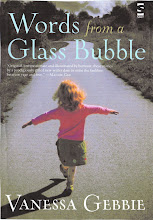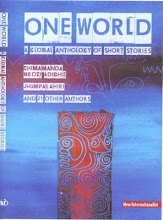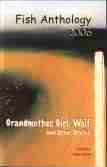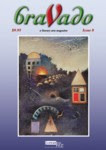I thought it worth posting this in full. I look at my entry and can see clearly why it ended up on the floor at his feet, and then in the bin. Useful stuff!
David Harsent:
‘Poetry should be at least as well-written as prose’: an over-quoted remark of Ezra Pound’s; and here I am quoting it again, since maybe the lesson still has to be learned by some. Pound didn’t mean written like prose, of course, though while judging this prize I did sometimes find it difficult to say why the piece of writing in front of me deserved to be called a poem. I mean, it was a piece of writing all right; but a poem? Who says?
Poems can seem a cinch – they don’t have to fill the page, the lines stay shy of the margin: no problem. Take a look at your Waitrose list. Seem a contender? Could be… There are ways of telling, sure, but that doesn’t mean I can offer the formula for a poem. The very notion of ‘formula’ is nonsense, though too often there was evidence that formulaic constituents had been applied: the emotion encapsulated, the shining moment preserved, the opinion flagged. What I can say is that a significant number of poems among those I was sent made me itch to give notes: a line too far; a redundant grace-note; a leaden sound in the music; a sudden string of dead adjectives; a wilful line- or stanza-break; a piece going along quite nicely until the expected arrived with a blind eye and a heavy hand. It’s not that the batch contained an unusually large proportion of total duds; more that I was frustrated by the missed chances, the near things, the close calls. It’s one thing to Frisbee a poem into the ‘nix’ box because the bum notes in the first couple of lines told you all you needed to know; it’s quite another to have thirty or so ‘maybes’ buzzing round your head like illtempered hornets. You know, really, that the poem won’t do; on the other hand, it so nearly does, and a nip here and a tuck there would have sent it to the ‘this clicks’ box. In the end, the ‘needs a fix’ box was the one that overflowed which is, frankly, a crying shame.
I had said I’d be looking for poems that didn’t seem to be a first or a second draft (or even a third) and I was moved to wonder how many of the poems silted up round my ankles had benefited from serious revision. If the answer is not many, that’s annoying. If it’s quite a few, that’s depressing. I’d find myself re-considering a poem for the tenth time and thinking, ‘No, look, if he/she can write this line, and this line, and this line, how in hell did this line get in? More than that, how did it manage to get in and lock the door?’ It’s not a matter of being original: that word isn’t at all what it seems; you can write about death or loss or sorrow or love, of course you can; just don’t do it as if you had everything to hand from the outset. You need to be looking over your own shoulder; you need to be the sceptical voice in your ear.
Since I seem to be in the business of quoting the over-quoted, I might as well iterate the opinion of a few (hundred) poets who have taught or judged, and say that it’s pretty clear that not enough people who write poems read poems. In truth, it’s not an option. If you want to stand a prayer of writing well you have to be well-read. It’s more a question of absorption than of copying, though influence is a necessary stage, something to be got through and not at all unpleasant: much like a slight illness during which you take to your bed, drink whisky, gain resistance to the bug, and emerge to write better than before. Beyond all that, of course, there’s a small matter of aptitude, which, in its more mysterious and potent version, might be called ‘gift’. It’s there or it’s not. There’s no remedy for a tin ear; or, to put it another way, creativity can’t be taught. However, it can certainly be encouraged and celebrated by competitions like the Bridport Prize out of which, whether or not the year’s entry is more nix than clicks, good things always come, a fact made evident by the selection printed here: pieces of writing, all of them, that have a clear claim to be read as poems.
There were thousands of entries for this competition, of which I was sent several hundred. When you get down to the last twenty, ‘ability’ has long since given way to ‘touch’ and there are always reasons for shuffling the pack. A different day, a different way? Well, no, I think I’d always have made this pick though, of course, there were those that came close. You might say that, when I got to the final few, the discards were poems that worked, but didn’t work for me. In particular, each of the three prizewinners had caught my eye at once with a line or an image, or made me listen to its music: qualities that stayed with me and became more evident when I went back to read again.
My third choice, Time Travel, is a study in melancholy. It’s of a piece in tone and narrative drift alike. It carries a ghost-novel between its lines. The poem gains, I think, from remaining deliberately unemphatic; the lines do their work without becoming strident or sentimental. The list – letters, ration-book, photo, lock of hair – finally extends to encompass the mother who, by the time the piece closes, has become almost a part of the narrator’s collection. The deliberate retreat from questions, from the gently implied weight of risk in the past, provides a nicely-pitched emotional alternating (therefore tyrannical) clocks, seems to leave us on a held breath.
Second prize goes to Finistère, a poem of invocation, a chant, almost, that uses an insistent scheme of near-couplets to sustain its brief, fierce energies. Like the wind blowing through its lines, the poem doesn’t let up; images are strong and keen, not least the arresting ‘… here on the Pont du Raz the salted man leans in/to the force of the wind …’ – clever line-break, compelling set-up for the mind’s-eye. Repetition is a crucial aspect of invocation (and of lament) and here it has a dual purpose: as musical device and as charm, since names, in such a context, have talismanic properties. The rhythms of the poem are sustained in a way that provides emphasis, not least when an openly risky octameter causes the voice to rise and extend at just the moment when it becomes most anguished and darkly lyrical.
The winner is Still Water, Orange, Apple, Tea. It might be said that this poem is about nothing more than ‘I’m not you and don’t have to be’, but what marks it out is the way this emotional commonplace is adapted to language. I’m guessing that the poet found, as things progressed, that she wanted to frame the piece up so that no line lacked a surprise, and it’s pretty much paid off. I liked its briskness – celebratory but never cloying – and liked, too, the fine-tuning: the way the rhyme-scheme of the chosen form (a Petrarchan sonnet) works for a tone of voice that promotes brevity. Abruptness, in fact, is part of the deal: a sort of Post-It Note poetry, where the notes in question sing and tease and intrigue. There’s a real confidence in the way the poet has gone about getting her effects, and the internal energy builds nicely to the double entendre in the final line.
Monday, 10 November 2008
Subscribe to:
Post Comments (Atom)




.JPG)























1 comment:
I met David and spoke to him a little bit, and liked him tremendously. Especially the down to earth cusswords creeping out in his speech. :-)
Post a Comment